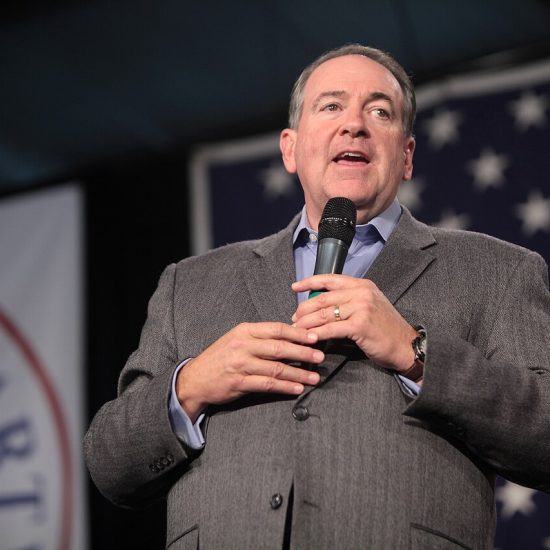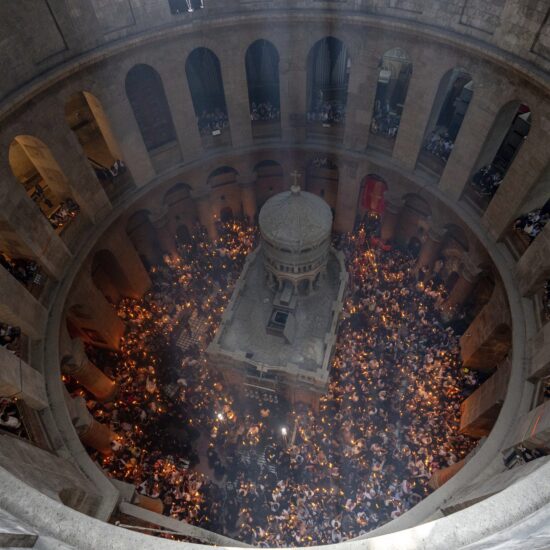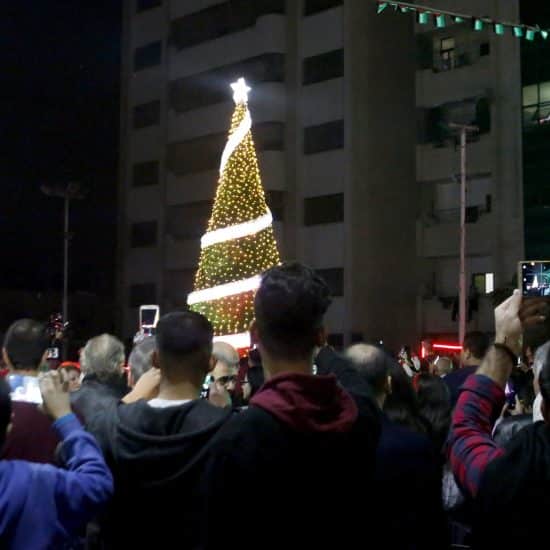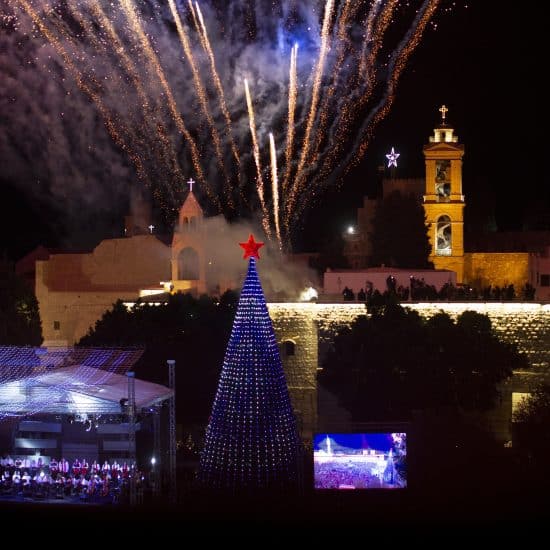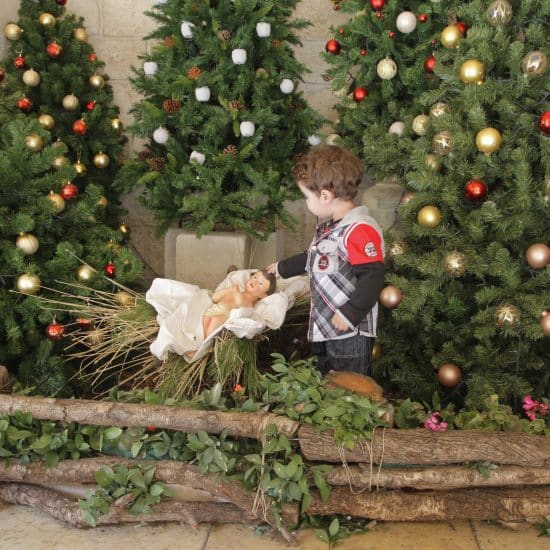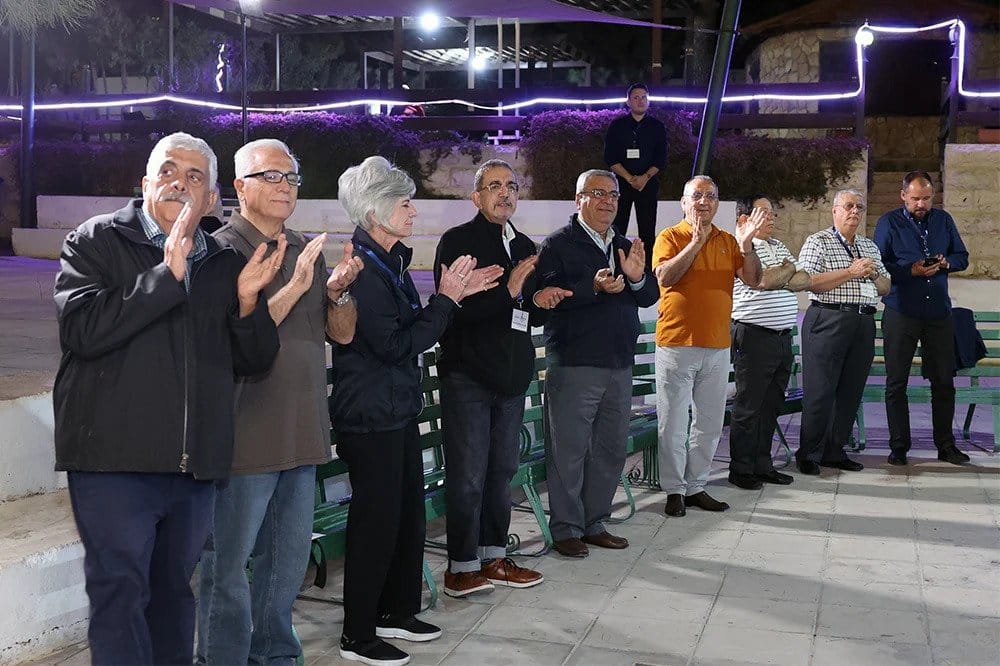
(RNS) — It may surprise many who think of the Middle East as an island of Israeli Jews surrounded by Muslims that in many Arab states, evangelical Christians are growing in numbers and power. At the same time, this minority is facing pressure, both from the Muslim majority and from other Christians.
A Sept. 26–28 meeting of the Middle East and North Africa Evangelical National Councils, held at the Ajloun Baptist Center north of Jordan’s capital, Amman, was the most representative event since MENA, the newest regional branch of the World Evangelical Alliance, was set up in 2018. Among the delegates were senior leaders serving some 600 million evangelicals from across the region. The World Evangelical Alliance secretary general, Bishop Thomas Schirrmacher, attended from Germany.
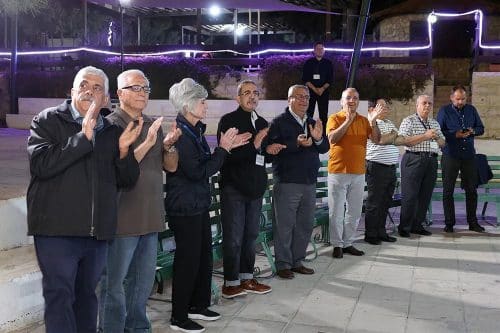
A meeting of the Middle East and North Africa Evangelical National Councils, held Sept. 26–28, 2022, near Amman, Jordan. (Issa Dahdal/Religion News Service)
The news from individual delegates was mixed. Bassem Fekry, a representative of the Egyptian Fellowship, said Christians in his country — about 20 million in all, according to Fekry, of whom it’s estimated about 3 million are evangelicals — have gotten a boost from President Abdel Fattah El-Sisi, who has begun a process to officially recognize church buildings as sacred spaces — a designation not all enjoy. Fekry is helping about 1,500 churches make adjustments to receive coveted government recognition.
Rev. Ghassan Audish, representing the Council of the Evangelical Churches of Kurdistan, in northern Iraq, boasted that there were 14 churches for Kurdish Christians. Thanks to the efforts of former Iraqi President Jalal Talabani, who changed the Ministry of Islamic Affairs to the Ministry of Religious Affairs, eight different religions are recognized in the region.
But Rev. Maher Fouad, the president of the Evangelical Church Union in Iraq, told his fellow evangelicals that the Iraqi government has denied recognition of Baghdad’s small evangelical community of 5,000 souls. Iraq officials, prodded by traditional church leaders, paint evangelicals as “a danger to Iraqi national security.” Eight evangelical churches in the city are threatened with closure. Fouad added that since the U.S.-led invasion in 2003, 2 million Iraqi Christians have left their country.
But even the exile of many Arab Christians from Iraq and elsewhere has prompted the opening of new venues for Arab evangelicals. In Qatar and the UAE, government leaders are allowing the evangelical refugees coming from more restrictive countries to meet and worship. Arab communities in Europe are prospering for the same reason.
A number of Arab nations’ governments have refused to fully recognize evangelical churches in large part because historic Eastern Christian churches oppose them for fear that evangelical churches are luring away their members.
Schirrmacher, whose wife is a professor of Arab studies, told the delegates that he has a “special love for the Middle East, for the Muslim world, for Arabic-speaking people.” While conceding that differences among Christians are especially felt in the Middle East, he called for unity and talked about the friction as family squabbles. He pointed out, too, that it was evangelical Christians who tried to overcome European divisions after the Protestant Reformation.
“Our forefathers put Jesus and the gospel above the theology,” he said.
Overall, the meeting, including the visit by senior evangelical leaders, was celebrated as a reflection of a growing movement that is gaining in discipline as an organization. Evangelicals are still seen as the newest kid on the block in the Middle East, and many see themselves as the continuation of the work of the first apostles, who planted churches whose remains are being unearthed every day in the region.
If there has been pressure on evangelicals from local governments, it has contributed to this cooperation, leaving only the question of whether national governments will accept that evangelicals in the Arab region are here to stay.
Daoud Kuttab is a Palestinian Christian journalist and member of the Amman Baptist Church.

